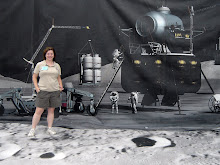(Crossposted from WIPSB)
Nepotism and sexism in peer-review
Christine Wennerås & Agnes Wold
Nature 387, 341 - 343 (22 May 1997); doi:10.1038/387341a0
This is a seminal paper - widely-cited and definitely worth reading. It touches on several issues that we brought up at the LPSC breakfast, including whether women are “naturally” less competitive in science than men and the gender balance of review panels for proposals and prizes.
The study used data from applicants to the Swedish Medical Research Council fellowships. Before the study, the United Nations names Sweden as the leading country in the world with respect to equal opportunities for men and women. Also, biology and medicine are fields where gender balance has achieved more parity than other fields of science, and it might be thought that this would be reflected in the award pool.
In the study, applicants were approximately half male and half female. However, awardees were about 75% male and 25% female. The evaluations were based on three categories: scientific competence, quality of the proposed methodology, and relevance of the research proposal. While women did about as well as men in the second two categories, they were judged systematically deficient in the first: basic competence.
The study attempts to break down “scientific competence” from one subjective category into six objective variables based on papers published and citations. The finding that hit me in the gut: to receive the same competence score as a male colleague, a female needed to exceed his scientific productivity by three extra Science or Nature papers, or 20 extra papers in a lower-impact professional journal. Three extra Science or Nature papers?!?!?!?!?
I doubt that any one of the reviewers consciously made a decision to bust the female applicants down a notch. But this is a well-researched, well-documented case of embedded bias. Plus, this serious leak in the pipeline comes at a critical point, when scientists need to transition from being supported graduate students to self-supporting scientists.
Monday, April 21, 2008
Subscribe to:
Post Comments (Atom)

1 comment:
Interesting. I am just browsing around to see if anyone is interested in sociology of science. There are but a few on blogger. I am just getting started in a totally different field - that of large goverment funded ICT programs in Europe.
Post a Comment